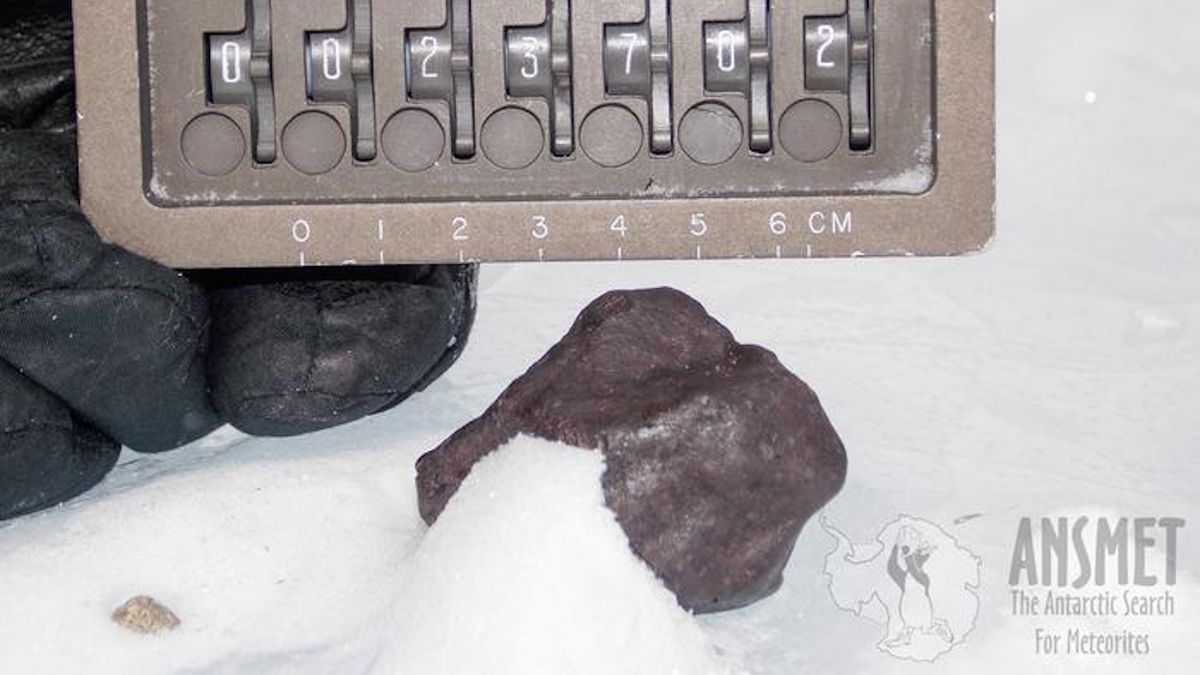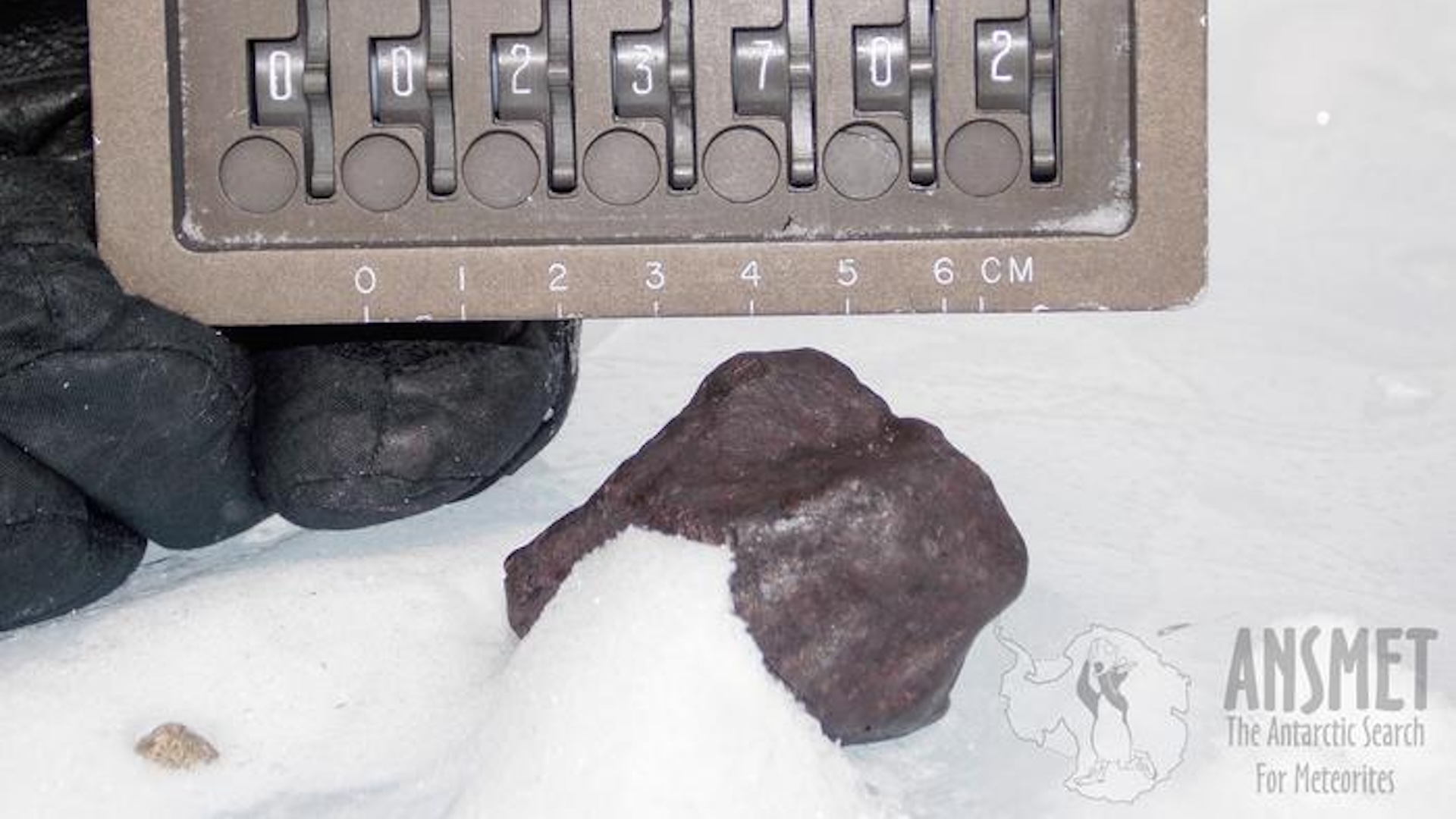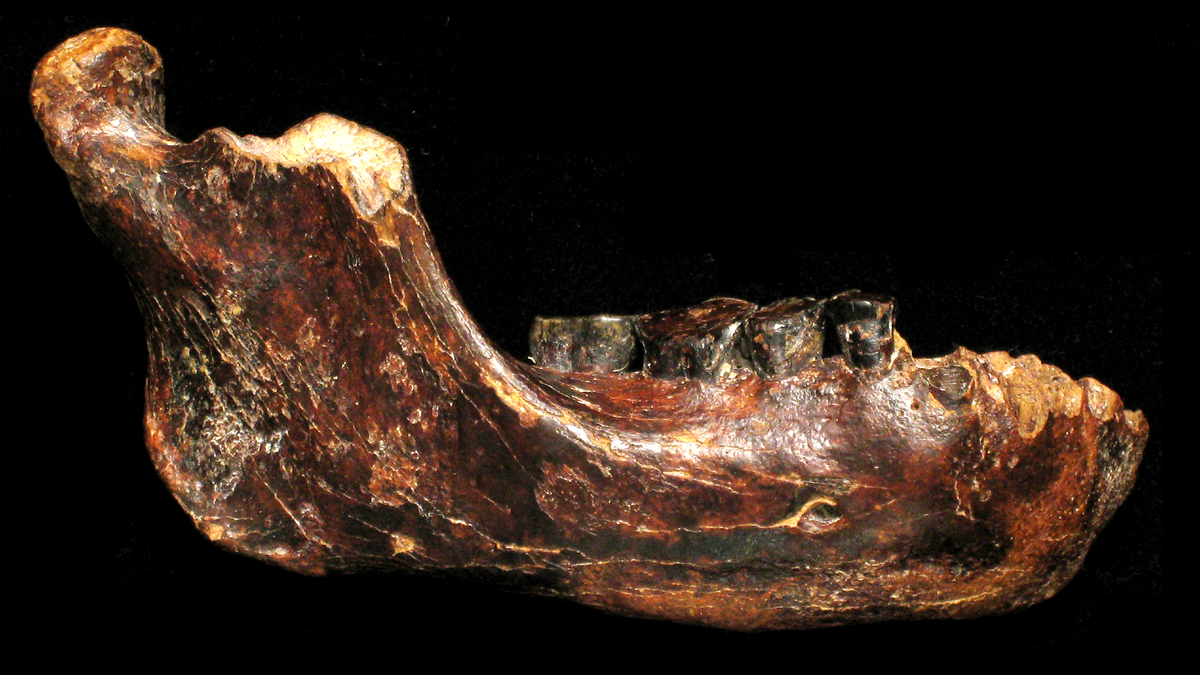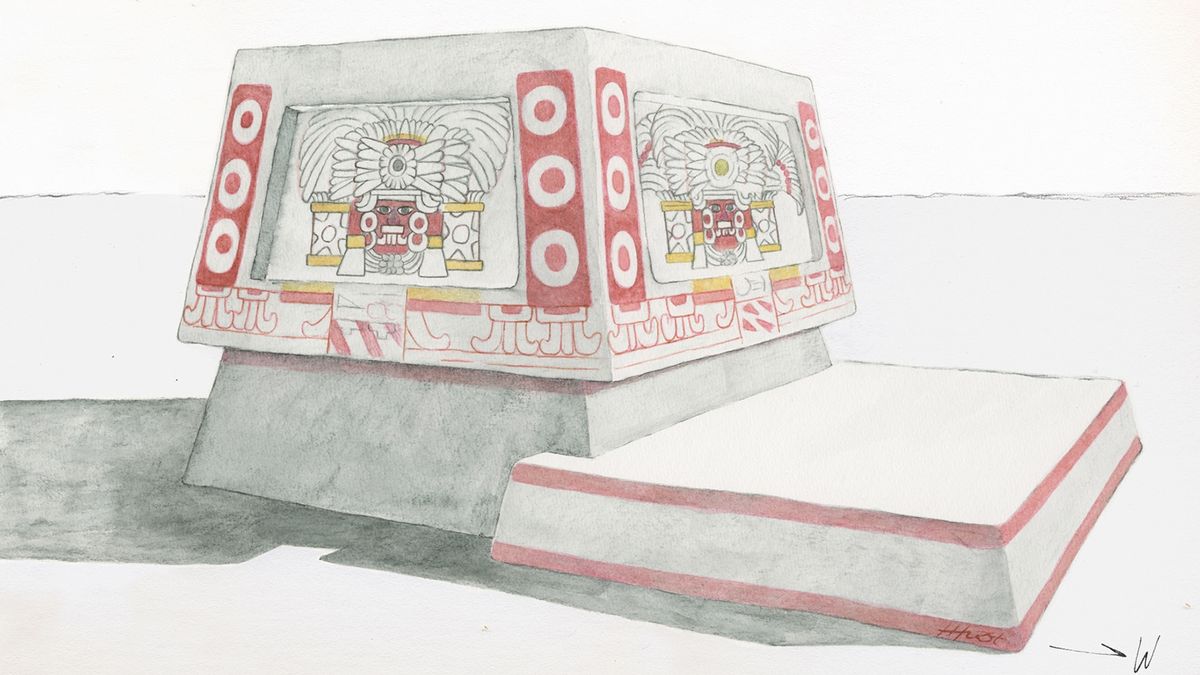The chemical composition of a meteorite could shake up scientists’ understanding of how Earth got its water.
Researchers found signs of hydrogen sulfide in a type of meteorite similar to those that made up the early Earth. If these rocky bodies contain abundant hydrogen when out in space, it’s possible that Earth could have formed with the materials to make water, rather than getting most of its water from chance collisions with asteroids and meteoroids throughout the planet’s early history. The findings were published April 16 in the journal Icarus.
Earth’s chemical makeup is similar to waterless rocky bodies called enstatite chondrites, which suggests the planet may have formed from these types of materials. For years, scientists thought that meant that water had to come from objects in the outer solar system bombarding Earth. Those collisions are broadly unlikely because they depend on the specific geometry of our solar system, with Jupiter’s gravity sending comets and meteorites toward the inner solar system, said Alessandro Morbidelli, who studies planet formation at Collége de France in Paris and was not involved in the new research.
But a 2020 study showed that, though enstatite chondrites don’t contain water, they do contain hydrogen. In theory, then, the hydrogen they carried could have reacted with oxygen in the early Earth to form abundant water. But it wasn’t clear what form that hydrogen was in. Study coauthor James Bryson, a planetary scientist at the University of Oxford, and his colleagues suspected the hydrogen might be attached to sulfur inside the meteorites.
Using a technique known as X-ray absorption near-edge spectroscopy, the researchers looked for signs of hydrogen attached to sulfur inside an enstatite chondrite first found in Antarctica in 2012. They found more hydrogen than expected, in the form of hydrogen sulfide, throughout the fine-grained matrix of the meteorite.
Related: Meteorite found in a drawer at university contains 700-million-year-old evidence of water on Mars
The abundant hydrogen indicates that Earth could have contained hydrogen since the planet’s formation, Bryson wrote in an email to Live Science.
The findings suggest that rocky planets in the inner solar system — and potentially in other planetary systems — could form with much of the hydrogen necessary to create water oceans. “This means habitable conditions could be far more likely than we originally thought,” Bryson continued.
Still, some scientists aren’t convinced. Enstatite chondrites are prone to contamination from water already on Earth, said Conel Alexander, a meteoriticist at the Carnegie Institution for Science in Washington, D.C. who was not involved in the study. “When they enter the Earth’s atmosphere and see water and even oxygen, they’re going to start reacting quite quickly,” Alexander told Live Science. The extra hydrogen might have come from the Antarctic ice and meltwater around the meteorite before it was discovered, Alexander said.
Though the researchers took steps to avoid examining areas that had visibly reacted with water, a fresh enstatite chondrite could confirm where the hydrogen came from once and for all. “The perfect thing would be for a sample of an enstatite chondrite to fall to Earth, and we scoop it up immediately and stick it into a water-free, oxygen-free environment and keep it there,” Alexander told Live Science.

























